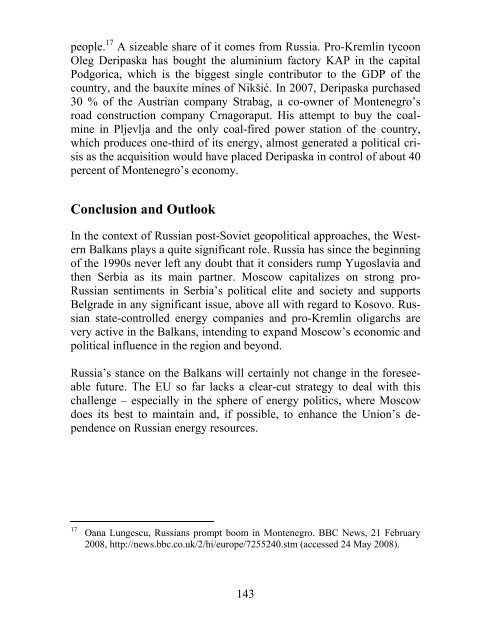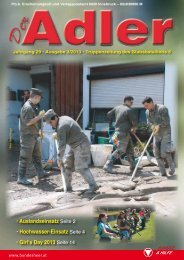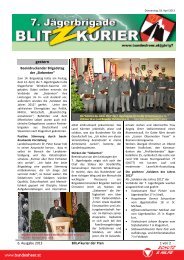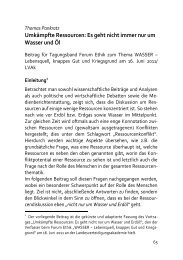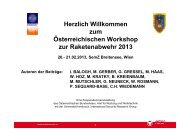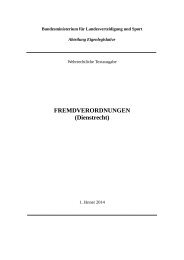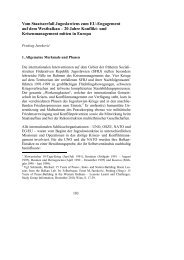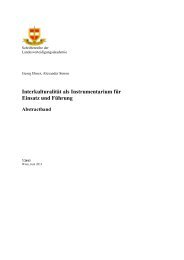Cutting or Tightening the Gordian Knot
Cutting or Tightening the Gordian Knot
Cutting or Tightening the Gordian Knot
Create successful ePaper yourself
Turn your PDF publications into a flip-book with our unique Google optimized e-Paper software.
people. 17 A sizeable share of it comes from Russia. Pro-Kremlin tycoon<br />
Oleg Deripaska has bought <strong>the</strong> aluminium fact<strong>or</strong>y KAP in <strong>the</strong> capital<br />
Podg<strong>or</strong>ica, which is <strong>the</strong> biggest single contribut<strong>or</strong> to <strong>the</strong> GDP of <strong>the</strong><br />
country, and <strong>the</strong> bauxite mines of Nikšić. In 2007, Deripaska purchased<br />
30 % of <strong>the</strong> Austrian company Strabag, a co-owner of Montenegro’s<br />
road construction company Crnag<strong>or</strong>aput. His attempt to buy <strong>the</strong> coalmine<br />
in Pljevlja and <strong>the</strong> only coal-fired power station of <strong>the</strong> country,<br />
which produces one-third of its energy, almost generated a political crisis<br />
as <strong>the</strong> acquisition would have placed Deripaska in control of about 40<br />
percent of Montenegro’s economy.<br />
Conclusion and Outlook<br />
In <strong>the</strong> context of Russian post-Soviet geopolitical approaches, <strong>the</strong> Western<br />
Balkans plays a quite significant role. Russia has since <strong>the</strong> beginning<br />
of <strong>the</strong> 1990s never left any doubt that it considers rump Yugoslavia and<br />
<strong>the</strong>n Serbia as its main partner. Moscow capitalizes on strong pro-<br />
Russian sentiments in Serbia’s political elite and society and supp<strong>or</strong>ts<br />
Belgrade in any significant issue, above all with regard to Kosovo. Russian<br />
state-controlled energy companies and pro-Kremlin oligarchs are<br />
very active in <strong>the</strong> Balkans, intending to expand Moscow’s economic and<br />
political influence in <strong>the</strong> region and beyond.<br />
Russia’s stance on <strong>the</strong> Balkans will certainly not change in <strong>the</strong> f<strong>or</strong>eseeable<br />
future. The EU so far lacks a clear-cut strategy to deal with this<br />
challenge – especially in <strong>the</strong> sphere of energy politics, where Moscow<br />
does its best to maintain and, if possible, to enhance <strong>the</strong> Union’s dependence<br />
on Russian energy resources.<br />
17 Oana Lungescu, Russians prompt boom in Montenegro. BBC News, 21 February<br />
2008, http://news.bbc.co.uk/2/hi/europe/7255240.stm (accessed 24 May 2008).<br />
143


